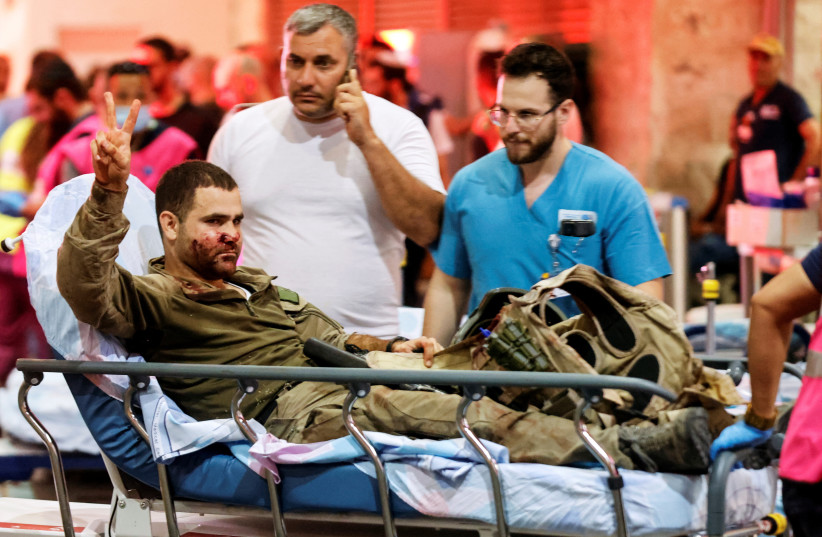"It’s not easy. If it were, everyone would be a doctor because it’s the best job in the world, despite everything, because of everything.” (The Resident)
October 7, 2023. The day I realized that Israel is my home. And the people around me are the most precious to me in the world.
I’m Daria, an emergency medicine resident at one of the best hospitals in Israel, Soroka Medical Center, Beersheba.
It never occurred to me that what began as a typical workday would split the lives of millions of people into before and after.
October 7 changed everything
October 7, 2023. Saturday. This is a day after which our lives will never be the same.

For me, this day started like many others.
7:40 a.m. Near the entrance to the Frances and Nathan Kirsh Emergency Department, there are dozens of ambulances with sirens – lots of noise.
I entered the trauma room and was shocked by what I saw. Screaming, crying, an endless stream of people, stretchers with injured people. The doctors examined patients quickly and skillfully, but this wave of patients seemed never-ending.
This all felt like a nightmare because it couldn’t really be happening. Wounded people covered in blood, exhausted. Many were unconscious.
I called my family with deep anxiety in my mind. My heart was beating like a metronome, and it seemed to me that everyone could hear it.
Suddenly, I heard a faint groan next to me. It brought me back to reality. On the stretcher lay a young man about 30 years old. I didn’t know his name. He spoke to me, and there were tears in his blue eyes. He reached out to me, and I bent down to hear him.
I hugged him, and he whispered that he had a wife and two babies waiting for him at home. He was terribly worried about them and really wanted to live. I had no idea what to say to him, so I said something that seemed appropriate at that moment: “Everything will be OK.” I could barely keep from crying. I just knew that now was not the time for that. At that moment, I felt I had no right to give in to tears in the presence of a person who believed in me.
From then on, the patients’ faces turned into an endless carousel: A 40-year-old woman with a broken arm, pneumothorax, and unbearable pain; a very seriously injured 29-year-old man who held my hand; a 20-year-old man with an open chest wound; a 30-year-old man, broken and covered in blood; a 20-year-old woman who would survive (but would it be the life she dreamed of?); and a 60-year-old man with a bullet in his head.
I remember the faces of my patients clearly.
What should you say to relatives waiting outside the door, hoping to hear good news about children, brothers, and husbands?
At that moment, we didn’t know the names of the victims. For us, everyone here had one common status: they were the victims, and we were their caregivers.
Some save others, and some need to be saved.
The doctors on duty and those who were supposed to be on their day off – but instead left everything and came to the hospital at a moment’s notice – all formed a united front to save people’s lives.
We had a common goal and a strong desire to save those who could be saved, to help, and to share the pain. That’s what united us all.
We all clearly understood that we had each other and were like family.
We are proud of it. We are all fighters and don’t know how to surrender.
I left the trauma room a little after 8.10 p.m., but not to rest.
There were still 12 hours left until the end of my shift, and despite the crazy day we’d had, the usual patients were also left – those with chest pain, strokes, and severe shortness of breath. Suddenly, it felt strange and different.
The main thing is never to forget that these patients also need treatment, a listening ear, and care.
October 7, 2023, was supposed to be a routine day, but it divided our lives into before and after.
I admire all my fellow doctors, the nurses, and all the hospital workers who did the impossible despite their exhaustion.
And they continue to fight every day to succeed and heal their patients. They give so much of themselves. They are role models for me.
They live by a simple principle: if you have to be the best, then be the best.
I dedicate this to all my colleagues and friends.
The writer is an emergency medicine resident at Soroka Medical Center, Clalit in Beersheba.
